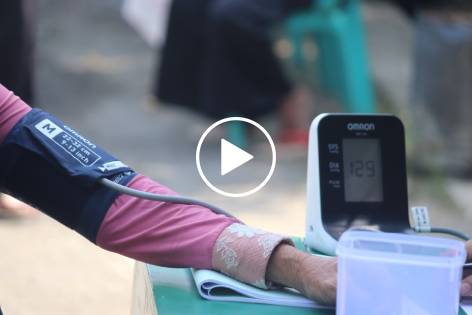
LMU 104 – Lifestyle Program for High Blood Pressure Management
Source: American Heart Association (September 8, 2018)
Lifestyle Medicine Update (September 13, 2018)
Introduction:
The prevailing approach to high blood pressure often involves medication as a primary solution. However, the 2017 American Guidelines by the College of Cardiology/American Heart Association advocate lifestyle changes as the initial step in managing mild cases of high blood pressure (hypertension).
The Impact of Lifestyle and Nutrition
In September 2018, the American Heart Association reinforced the potency of lifestyle and nutrition in blood pressure management. The study involved 129 overweight or obese individuals aged 40 to 80 years with elevated blood pressure (130-160/80-99 mmHg). Notably, more than half met the criteria for medication based on recent guidelines.
Three Distinct 16-Week Programs
Participants were divided into three groups for a 16-week intervention:
- DASH Diet + Weight Management: Adopted the DASH diet while engaging in supervised exercise and behavioral counseling. Resulted in an average weight loss of 19 pounds and blood pressure reduction of 16/10 mmHg.
- DASH Diet Only: Focused solely on the DASH diet with nutritionist guidance, excluding exercise and weight loss counseling. Led to a blood pressure drop of 11/8 mmHg.
- No Change: Maintained usual exercise and dietary habits, causing minimal blood pressure decrease of 3/4 mmHg.
Promising Outcomes
- Comprehensive Approach: Those combining DASH diet with exercise and counseling achieved remarkable weight loss and significant blood pressure reduction.
- Diet-Centric Benefits: Participants adhering solely to the DASH diet also experienced meaningful blood pressure improvement.
- Marginal Impact: Individuals without lifestyle changes had negligible blood pressure decrease.
Implications and Success Rate
By the study’s end:
- 15% in the comprehensive lifestyle group were still candidates for antihypertensive medication.
- 23% in the diet-only group remained candidates for medication.
- 50% in the no-change group met criteria for high blood pressure drugs.
Holistic Health Enhancement
This research underscores that simple dietary and lifestyle modifications can effectively lower blood pressure in mild cases. These changes also positively influence blood sugar, cholesterol, and triglycerides, vital risk factors for heart disease and stroke. The comprehensive lifestyle approach showcased a decrease in cardiovascular disease risk through weight loss, adding to its efficacy.
Conclusion: Embracing Lifestyle Medicine
Evidently, lifestyle adjustments hold considerable potential to manage high blood pressure and reduce cardiovascular risks. Given that heart-related ailments remain a significant cause of premature mortality and disability, embracing lifestyle medicine proves crucial in safeguarding health and longevity.
Reference:
Lifestyle changes reduce the need for blood pressure medications. The American Heart Association Meeting Report – Presentation P388:
https://newsroom.heart.org/news/lifestyle-changes-reduce-the-need-for-blood-pressure-medications?preview=c059 (September 8, 2018)
Eat Smart, Live Well, Look Great,
Dr. Meschino

Dr. James Meschino
ABOUT THE AUTHOR
Dr. James Meschino, DC, MS, ROHP, is an educator, author, and researcher having lectured to thousands of healthcare professionals across North America. He holds a Master’s Degree in Science with specialties in human nutrition and biology and is recognized as an expert in the field of nutrition, anti-aging, fitness, and wellness as well as the author of numerous books.


